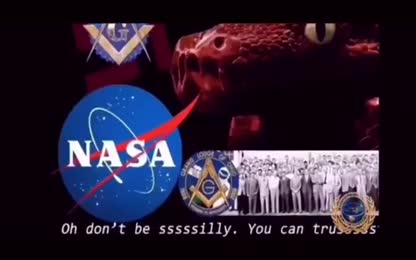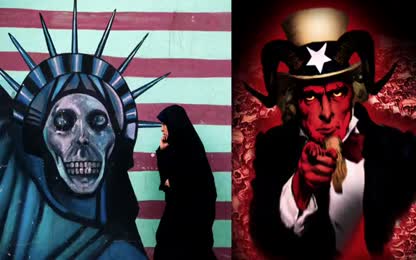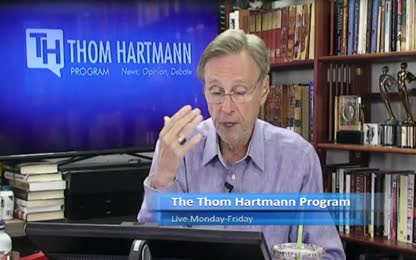Advertisement
The New York Times wants YOU to know the truth, about SLAVERY in America.
In their, (The New York Times), latest commercial advertisement on CNN, apparently there is an ongoing Project ( The 1619 Project) to set people straight on the truth about slavery in North America. With the recurring election season issue of reparation for the sins of Slavery, let us shine a light on that issue. Let’s help The New York Times get to the whole truth, and set people’s minds at ease, once and for all. Here are SOME SHORT EXCERPTS from a long speech by Professor Tony Martin. His speech is titled:
The Jewish Slave Trade of Africans https://www.youtube.com/watch?v=g5SsGfZubKA
Professor Tony Martin, speaks about the immense Jewish influence in the African Slave Trade as well as the slave trade of Whites and Asians.
Unfortunately... this Black Hero, has died, leaving behind a legacy of rebellion against the vicious and disgusting Jewish power that has haunted him (among many others) until the end of his life for speaking out and exposing them.
The 1619 Project
The 1619 Project is an ongoing initiative from The New York Times Magazine that began in August 2019, the 400th anniversary of the beginning of American slavery. It aims to REFRAME the country’s history by placing the consequences of slavery and the contributions of black Americans at the very center of our national narrative.
Read more about The 1619 Project.
https://www.nytimes.com/interactive/2019/12/20/magazine/1619-intro.html
AND... there are actually podcasts, created to expound these truths. https://www.nytimes.com/2019/08/23/podcasts/1619-slavery-anniversary.html
why we published he 1619 project
By Jake Silverstein
DEC. 20, 2019
- Category: Servants of Evil,Pursuit of Truth,Synagogue of Satan,Slave Trade / Slavery
- Duration: 11:14
- Date: 2020-02-11 15:53:48
- Tags: slave trade, the new york times, truth.
9 Comments
Video Transcript:
carried more than 20 enslaved Africans who were so to the colleges. No aspect of the country we know today has been untouched on a slavery that followed. America was not yet America, but this was the moment of the game. It was the original African and when God threw Noah, cursed Ham and his son, Kenan, and all his descendants, he was in fact cursing the African race. This was the unique new element of the story that the time he was originated. The curse on Ham and Kenan was not only a curse on an individual and his family, but it was a curse on a race. So here, this is the contribution of the Tanyu. You would say it and I'm going to quote all this exactly in a minute. I'm not making this up. It sounds incredible. But I'm actually paraphrasing a gentleman by the name of Harold Blackman, a man who works or works until recently for the Simon Rezendor Center of all agents in the world. It's seven thirds. He was all of this in his dissertation. And it might not surprise you to discover that once people like myself began quoting what this guy, Blackman wrote, I'm sure you can guess what happened next. And that is the Blackman denied the written stuff. This stuff is in Blackman's PhD dissertation. It's called the Airborne Floor of History. Anybody here can easily read it. If they don't have it, they'll get it to you until I reloads. It's called the Airborne Floor of History. It's a PhD dissertation. I think in the history department at UCL A, 1977, by Harold V. Blackman, who I believe up to a couple years ago, maybe even now, is or was until recently a functionary of the Simon Rezendor or is it Rezendor Center. But despite the fact that his writing is clearly in a public record that anybody, an undergar student, can access this stuff and check it for themselves. Once the story got out, he quickly denied the written. This man actually wrote letters to the New York Times. I believe I have the actual, you know, so photos here in the Jewish ones, not considering all this. This man wrote letters to the New York Times. He wrote a slew of letters to Black publications all over this country denying all of this stuff. Even though it's right there on the record. Words of Harold Blackman, let's do suspected on making this up. On fourth in here from Harold Blackman, the dissertation I mentioned a minute ago, the Airborne Floor of History. Quote, there is no denying, this is on page 34, it gives anybody who has a book. He's like reading a lot with me. I know several of you have the book on it. But this is on page 34 in the middle of the page, second new paragraph. There is no denying that the Babylonian townhood was the first source. And listen to how un-é-cifical he is here. It was the first, the very first. In other words, this is Blackman from the Simon Rees and Thor Center, acknowledging that a townhood was the one, was the place of invented this story of the Hamadikah Kurs. There is no denying that the Babylonian townhood was the first source to read a Negro phobic content into the episode. Here he is referring to the episode of Ham looking upon his father's nakedness. He goes on to suggest that these early stages, some of them, you know, sort of imposed this homosexual sort of spin under the story. Quote, he says, Rob is one of these stages. He says, Rob maintained that Ham had unmanned Noah. So Ham, according to this stage, had actually castrated his father. While Samuel, Samuel is some of the sage, Samuel claimed that he had bugged him as well. Both unmanned him and bugged him. Now, how this arose out of the biblical story, you know, I'll never understand. Let me continue to quote from Blackman here in his dissertation. Quote, he is discussing here various, you know, slightly diverging, you know, variants of this myth. He goes on to say, quote, the more important version of the myth, that's the Hamadik myth. However, ingeniously, ties in the origins of Blackness and of other rare and imagined, Negroid traits with Noah's curse itself. According to it, that's according to this most popular version of the Hamadik myth. According to it, Ham is told by his outraged father that because you have abused me in the darkness of the night, your children shall be born black and ugly. This is an Italian myth. Because you have twisted your head to cause me embarrassment, they shall have kinky hair and red eyes. So if you ever wondered what the origin of kinky hair and red eyes of Blackforker, here you have it. Because your lips justed at my exposure, theirs shall swell. That's why Blackforks have thick lips. And because you neglected my nakedness, they, that is your children, the children of Ham and Kinyan, they shall go naked with their shamefully elongated male members exposed for all the sick. So they have the origin of a whole variety of stereotypes that didn't happen. So the Hamadik myth then is where you really have to begin, you know, in terms of discussion of the Jewish rule in the slave trade. They provided the rational power excellence for the prosecution of that slave trade. So, yes, after the Babylonian tenured, sometimes in Middle Ages, a man who I believe they consider to be perhaps one of the greatest philosophers ever, a man by the name of my monodies, actually also contributed to that notion of Africans being subhuman when in his famous book, guided to the perplexed, guided to the perplexed. When he, my monodies suggested, again, the African people who were less than human, that they were somewhere between monkeys and human beings. This is by one of these, a man who is one of the most revered of one of these Jewish sages. So by the time then, when the slave trade came along, when, you know, there was this tradition which had been floating around Europe, and it was seized upon then by the slave traders, Jews and Gentiles, like, as a basic rationale. There were other areas in which the Jewish presence was very manifest. For example, although I don't know a whole lot about this aspect of it, but Manistani is that Jews were in fact very prominent in the slave traders in the centuries prior to the beginning of the Atlantic slave trade. Manistani is a Jews, you know, for many years, so Muslim slaves, the Christians and so all Christians slaves, the Muslims, and they were sort of accepted as the slave middlemen by both sides. This is, you know, a long time before the Atlantic slave trade came about. The earliest multinational corporations involved in the Atlantic slave trade were something called a Dutch rest in their company. The Jews were also very prominent present in non- Dutch parts of the Caribbean. This is like Babel. This is like Jamaica. And many of the other islands as well. There's been a big debate that has arisen concerning, you know, whether Jews were the dominant element or not, or whether they were even my important element. But most of that discussion has taken place in the context of United States of America. In the US, it may not be correct to say that slaves were as dominant, that Jews, sorry, were as dominant in the slave trade as they were in parts of, say, the Caribbean or Central America. Nevertheless, Jews were an important part of the slave trade in this country in the US of the way. Anyway, in fact, in the US of the way Jews apparently played a role in the slave trade that was greater than the numbers in the overall population would suggest. Just as a 1992, a study done based on the Forbes magazine list of the richest people in America for 1992, a study based on that list discovered that something like 33% of the billionaires in the US of the way were Jews based on the Forbes list of 1992. At a time when Jews claimed to be 2.5% of the United States population, so just as a 1992, they were all represented in the high echelons of this country. Just so during the slave trade, even though the numbers may have been relatively small, and many of the people who have tried to refute, you know, the suggestion that Jews were prominently and far with the slave trade in this country, and many of those people have put forward figures suggesting that Jews were only a very minute portion of the overall American population. Yes, they were a very small percentage of the American population, but that has nothing to do with their role in the slave trade, the importance of the role. The role was much greater than the numbers in the overall population would suggest. In the last few years, the number of Jews in the world is very small. The number of Jews in the world is very small. The number of Jews in the world is very small. The number of Jews in the world is very small. The number of Jews in the world is very small. The number of Jews in the world is very small.










 Donate
Donate







